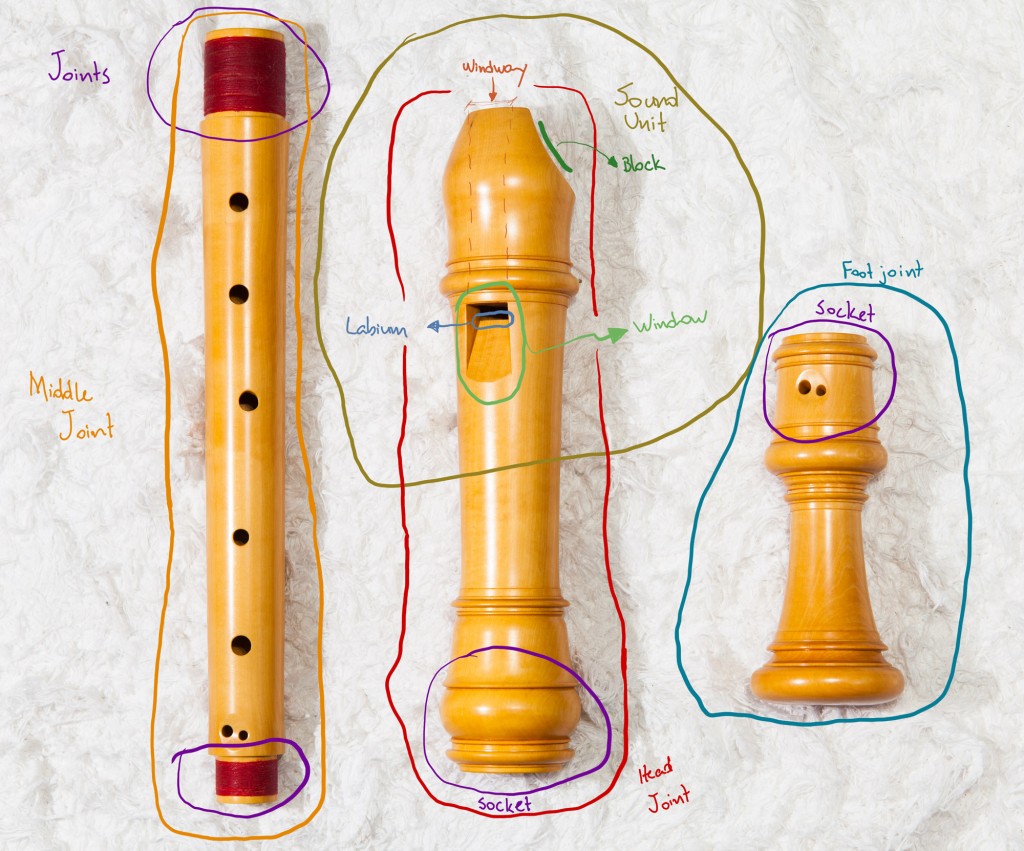I remember the first years of my musical studies... The teachers all told the students that we must play in tune and always check the tuner. Watching some really stunning chamber music performances on www.youtube.com, I wonder if these musicians learned to play in tune so well just by studying a tuner, looking at its pointer? Is there something else — something secret about pitch? Can anyone play in tune?
Remembering back to music school, I regret today not having taken classes in this subject when I was very young, just starting to learn to play the recorder at the age of eight. Nowadays, I see very young pupils, who learn to hear intervals in tune from an early age — and who have no trouble tuning their instruments or playing in tune in a group. But even when we are not so young, we can learn some concepts and parameters that help us play in tune - Leia mais...
Articles ● English
Month: April 2013
Tuning – Understanding How Pitch Works
28/
04/13
How should I clean my wooden recorder?
18/
04/13
 In the first article, about basic care of your recorder, I mentioned the great importance of keeping your instruments clean. However, I did not explain how to clean your wooden recorder, because it requires extra care compared to the process used for the resin or plastic ones.
Always keep in mind that it is better to be safe than sorry: if you care for your instruments — keeping them clean, oiled and safe from damage — you will rarely need the techniques described here.
When should I clean my wooden recorder?
First, we need to know how to tell when a recorder really needs cleaning. After that, we need to know how to best remove each type of dirt.
The most common - Leia mais...
In the first article, about basic care of your recorder, I mentioned the great importance of keeping your instruments clean. However, I did not explain how to clean your wooden recorder, because it requires extra care compared to the process used for the resin or plastic ones.
Always keep in mind that it is better to be safe than sorry: if you care for your instruments — keeping them clean, oiled and safe from damage — you will rarely need the techniques described here.
When should I clean my wooden recorder?
First, we need to know how to tell when a recorder really needs cleaning. After that, we need to know how to best remove each type of dirt.
The most common - Leia mais... Articles ● English
This subject is controversial, isn’t it? We have heard a lot of conflicting opinions, such as:
Don’t oil your recorders, because the wood is already treated, and the oil could damage the wood;
Apply oil on a daily basis, always polishing the recorder using a cloth or piece of leather dampened with oil;
Almond oil is the best;
Grape seed oil is better, because it is thinner;
Linseed oil is better because it won’t make the recorder sticky;
Oil can swell the wood, cracking the instrument at the tenons;
I always oil my plastic recorders, because player X, who plays in Y ensemble, told me that it is very important!;
I don’t use oil, because someone told me that the recorder could ignite by itself;
The secret is to use a lot of oil on the foot joint, it improves the sound quality.
Obviously I do not to remember everythi - Leia mais...
Articles ● English
Articles ● English
 I have heard recurring questions among recorder players about how to care for the instrument, how to clean it, when to oil it and which oil should be used, what to do when the recorder clogs, and many others. This article is the first of a series dealing with various subjects, to clarify some of these questions.
First, I shall distinguish among the recorders themselves, because the care differs for plastic and for wooden ones. All care applied to plastic instruments also applies to wood instruments, unless stated otherwise.
Plastic or resin recorders
All wind instruments tend to condense water inside when played. This is due to th - Leia mais...
I have heard recurring questions among recorder players about how to care for the instrument, how to clean it, when to oil it and which oil should be used, what to do when the recorder clogs, and many others. This article is the first of a series dealing with various subjects, to clarify some of these questions.
First, I shall distinguish among the recorders themselves, because the care differs for plastic and for wooden ones. All care applied to plastic instruments also applies to wood instruments, unless stated otherwise.
Plastic or resin recorders
All wind instruments tend to condense water inside when played. This is due to th - Leia mais... Articles ● English









